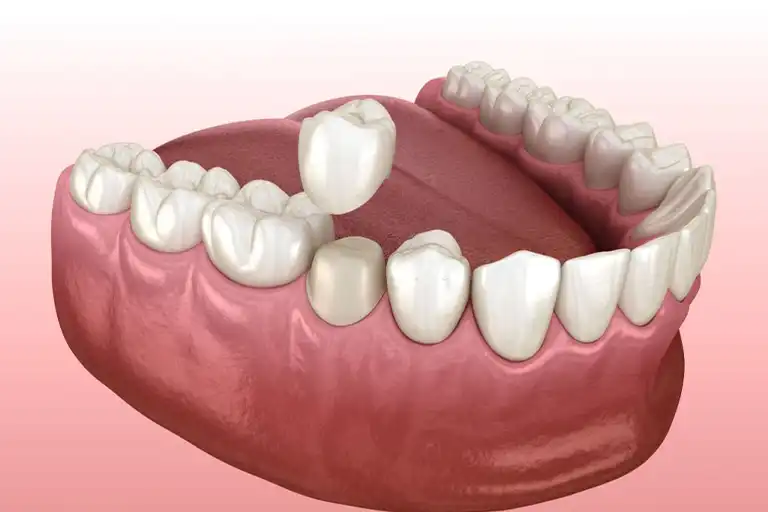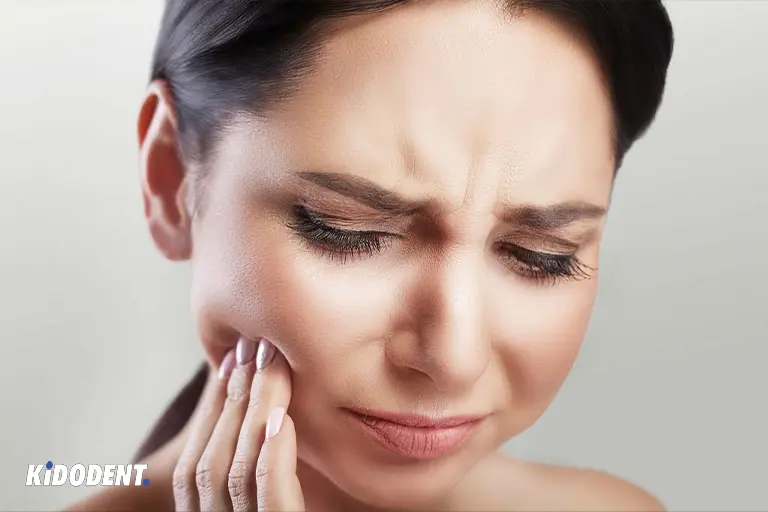Crowns protect and cover a decayed or damaged tooth, improving one’s smile and oral health. Having pain was the last thing you thought about your crown. However, it can happen and it is not unexpected. After all, a crown sits on your existing natural tooth if there is no implant involved. If you experience pain or any discomfort in your crown tooth, it can be due to several factors. Here in this article, we explain what may be causing your pain and what you can do to relieve it.
What is a dental crown?
A dental crown is a cap that is placed over a damaged tooth. It helps restore the size, shape, and function of a tooth that is decayed, weak, discolored, or misshapen. Crowns offer strength and protect a tooth from further damage.
What causes tooth crown pain?
There are a number of reasons if you are experiencing pain in the tooth under your crown, like:
Infection
Inside a tooth lies the dental pulp, a living tissue consisting of the nerves and blood vessels. Once you get a crown, a dentist might first perform a root canal or not depending on the amount of decay or damage and whether or not the tooth’s pulp is healthy or infected. If you didn’t have a root canal treatment to remove dental pulp, the tooth has still nerves.
Therefore, you feel pain and sensitivity when your tooth has an infection. And the crown can put pressure on the traumatized nerve inside, causing you pain.
There are some signs that are common when an infection occurs in crowned tooth. This can include painful sensations when you bite or touch the crown, sensitivity to cold and hot temperatures, swelling in the area, and fever.
Tooth decay
Tooth decay is one of the most common dental conditions. People with poor oral hygiene cannot safeguard themselves against tooth decay with a crown or without it. High sugar intake, not flossing, and improper brushing are primary risks that you can get a cavity under a crown.
The margin between a crown and your natural tooth is a potential site where tooth decay can form. Your crown should normally seal the prepared tooth beneath and protect it against plaque bacteria from entering.
If there are any gaps or damaged edges to your crown, the decay can develop into the dentin under your crown and can turn into larger cavities. This results in the exposure of the nerve to outside risk factors and bacteria affecting the pulp, so you will experience persistent pain. You will then require a root canal either by your dentist or an endodontist.
Teeth grinding (bruxism)
If you grind your teeth, a condition known as bruxism, you are putting extreme pressure on teeth, jaws, and the crown. This unnatural force causes some serious pain in teeth, jaw muscles, face, and even headaches.
The consistent bruxism habit leads to harmful effects on your oral health, including occasional long-lasting pain, jaw muscle injuries, wear and tear of teeth, and fractures of dental restorations (in your case the crown).
You may also have sleep bruxism in which you grind your teeth and clench your jaws during sleep. These all can explain the pain in your crowned tooth, and so do in other teeth that have been under frequent pressure and biting downs.
Sore gums after your crown procedure
Getting a crown is a pain-free procedure. It is also common to feel some mild sensitivity, soreness, or pain in your gums for a few days after your procedure. This type of discomfort or pain is temporary and goes away on its own.
However, be sure to have your oral health checked and be aware of the gum disease signs. If your gums are sore, bleeding, or painful, these are the gingivitis symptoms.
Improper crown placement or fabrication
If your crown doesn’t fit properly or it is positioned incorrectly, it is responsible for your pain. An ill-fitting crown does not match your bite. Therefore, you may feel pain not only in your tooth crown but also in your jaws when you bite down.
In addition, there are higher risks of the dental nerve being inflamed and the pulp getting infected in an improperly fitted or badly made crown.

What can you do to relieve your tooth crown pain?
Until you make an appointment to see your dental professional, there are some ways to relieve your tooth crown pain. Over-the-counter pain medications like ibuprofen or acetaminophen provide you with temporary pain relief. These are classic toothache medications that work great to alleviate your pain.
If you are looking for other home remedies, try salt water rinse or herbs such as clove or garlic to lessen your pain.
There are also desensitizing toothpaste and mouthwash available to buy to decrease your sensitivity. These products help numb the dental nerve due to the numbing agents found in their ingredients. It is also necessary to avoid hot or cold foods to prevent triggering pain and sensitivity. Sticky, chewy, hard, and highly sugary foods can create more tooth crown pain.
When should you see your dentist for treatment?
If you have a tooth crown pain that persists and doesn’t go away, see a dentist to get treatment as quickly as possible. Your dental professional rules out what exactly causes the pain and offers treatment accordingly.
Your dentist may plan for a replacement if the crown is fractured, damaged, or not fitting well. If the health of the pulp (tooth’s living tissues and nerves) is endangered, root canal treatment is needed.
To do the root canal work, your dentist should make an opening (access cavity) into your tooth. This can be done by drilling a hole through your crown on top or removing the crown first and then doing that. Your dental professional can recement the crown back or plan a replacement if the crown is not usable.
If the pain results from teeth grinding, you need to talk to your dentist to decrease the bruxism habit if it continues. Reduce your stress and anxiety to achieve long-term relief from the teeth grinding pain. Mouthguards or mouth splints are helpful tools to prevent further damage to your teeth as well as the crown.
